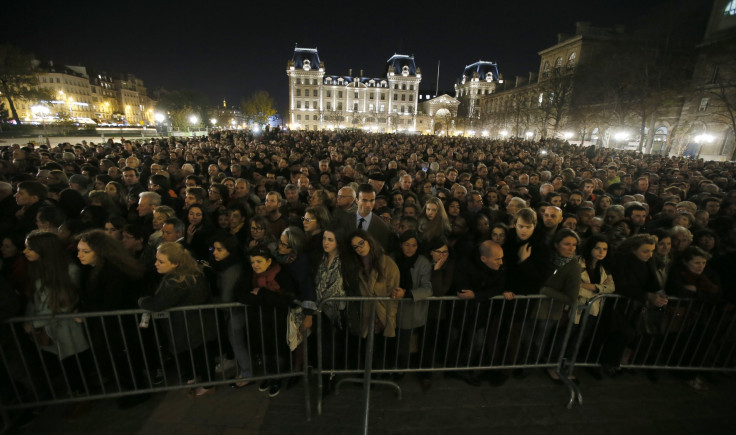Paris Attacks Aftermath Update: Ban On Rallies Extended Until Climate Talks At End Of November

French police said Saturday a ban on public gatherings in Paris has been extended until Nov. 30, when an international conference on climate change is set to start in the city suburb of Le Bourget, Agence France-Presse reported. After a coordinated series of terrorist attacks Nov. 13 left 130 people dead and hundreds wounded in and around Paris, authorities instituted a state of emergency, which will remain in place three months. They also banned two planned rallies related to the climate-change talks, which are expected to draw 40,000 people.
The French government has said it would not submit to terrorism and that the climate-change conference would go forward despite the attacks and the resultant state of emergency. The declaration of that state of emergency gives the government and police greater powers to place people deemed security threats under house arrest, carry out raids without prior court authorizations and break up gatherings that endanger public safety. It also grants the interior ministry the right to block websites and social media accounts.
The climate-change conference is known as the 21st Conference of the Parties, or COP 21. At the event from Nov. 30 to Dec. 11, leaders of 138 countries will discuss actions to be taken to deal with climate change around the world. According to the COP 21 website, the conference center where the talks are to be conducted will be open only to "accredited persons." However, areas outside the conference center will be open to the general public. "These areas provide a huge space for debates, knowledge-sharing, discussions and conviviality," the website said.
But in the wake of the terrorist attacks in and around Paris this month, conference organizers indicated the event would be carried out slightly differently than previously planned, the COP 21 president said in a statement.
"The situation created by the odious attacks of 13 November and the investigations that have since been carried out do, however, require enhanced security measures," the statement read. "All events organized in enclosed, easily secured spaces will take place," it said, although marches planned for Nov. 29 and Dec. 12 -- the days before and after the conference begins and ends -- were banned "to avoid any additional risk." It added, "This is a difficult decision and will no doubt disappoint some of those who hoped to take part, but the imperative of safety requires it."
Environmental activists had hoped to use the rallies to draw attention to the need to cut greenhouse-gas emissions and pressure governments to implement measures doing so. After the government said it would ban rallies in Paris, activists called for others around the world to march instead.
Emma Ruby-Sachs, the deputy director of the civic organization Avaaz.org, said it is more important than ever "for people everywhere to march on the weekend of 29 November on behalf of those who can't and show that we are more determined than ever to meet the challenges facing humanity with hope, not fear," the Guardian in the U.K. reported.
© Copyright IBTimes 2024. All rights reserved.






















